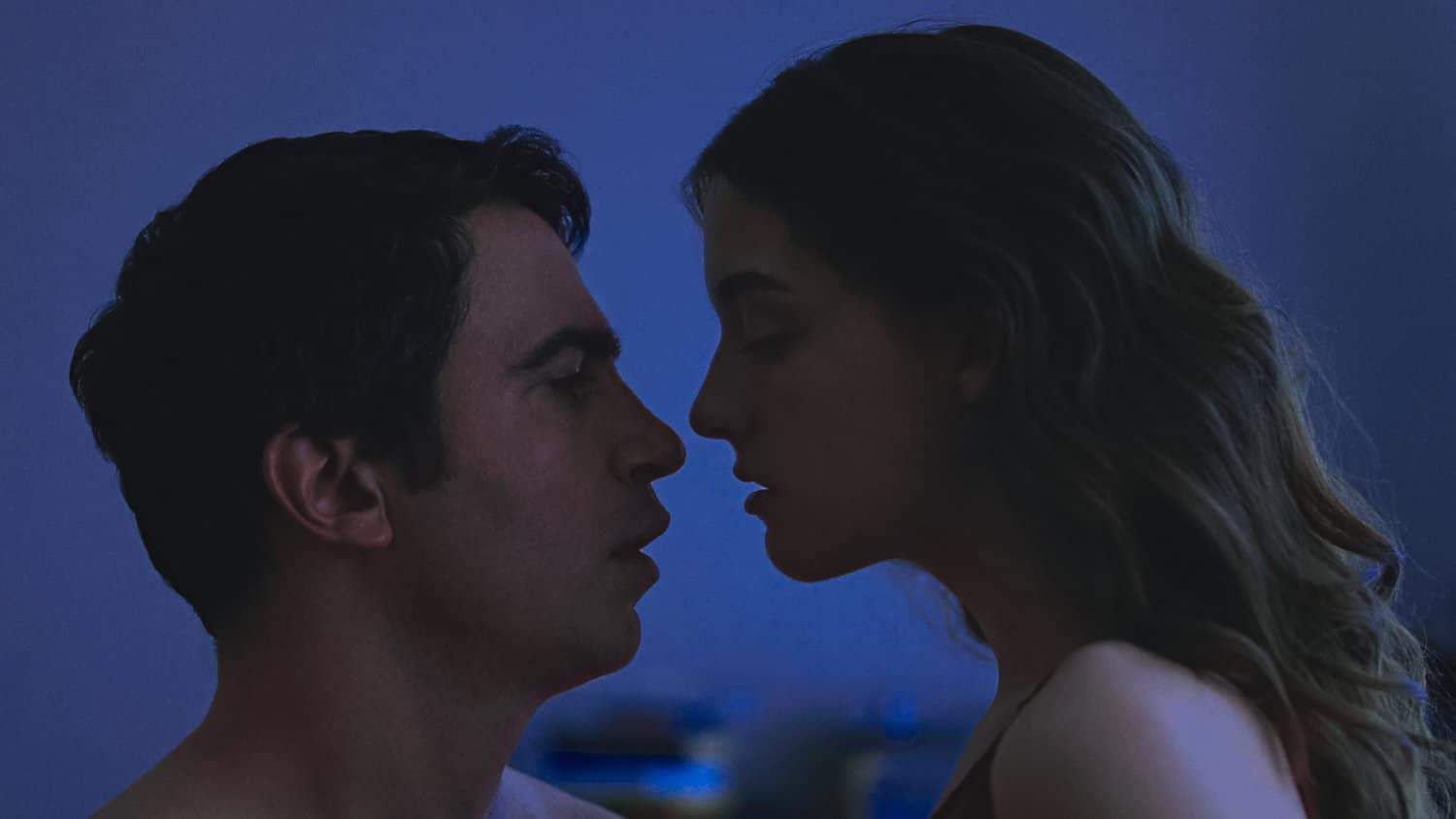
A coming of age tale that bristles with the worldview of how highschoolers see themselves.
“Why do you kiss me if you don’t want to be with me?” asks Quinn Shephard’s Abigail during a climactic point in Blame, and it’s a moment that strikes with bittersweet familiarity. Years ago, I remember meeting someone at a small college function and then, after collectively having nothing to say in the midst of a then-vivid discussion on the jazzier beats inside Frank Ocean’s Channel Orange, we simply began looking at each other for extended chasms of time. There was nothing else to do, so I began a lean-in. We started kissing. Time soon felt like it had flattened out, and I wondered if it would ever end, this embrace. It eventually did. A month or so later, I texted her to see what was up. She said she heard I had a girlfriend, which was true enough, I suppose.
Shephard, who also wrote, directed, produced, and edited the film, plays a high school student who is deeply in love and directs her earnestly disappointed question at Jeremy, a substitute high school drama teacher (mannishly performed by Chris Messina) who both leads the class in a production of Arthur Miller’s “The Crucible” and makes out with one of his students, played by Shephard. Her script ostensibly disturbs their romance with the involvement of a peer named Melissa (Nadia Alexander), who schemes with her friend (Sarah Mezzanotte) to out the affair. In between, Melissa and her friend have sex with two lanky-looking jocks while some knock-off Atlanta trap plays, a visual counterpoint to the classier sex to be had with the drama coach. This leads the viewer to conclude that the scheming comes from a place of jealousy but, instead, the answer is withheld until a well-acted monologue, performed by Ms. Alexander, changes things up at the movie’s end.
But Jeremy is the more practical obstacle than these meddling kids. Shortly after exchanging gobs of spit with his student, he demurs and begins directing her to voice mail. Is he wary of committing a sex crime or merely bored after getting what he wants? Messina walks this tightrope carefully: his performance is a masterpiece of extreme edging. Shephard is less interested in the cliché of subverting clichés. Instead, she adjusts them with relish. A cheerleading montage nods earnestly at American Beauty, a movie whose ironic perviness Shephard makes a project of correcting with her own earnest gusto. There are people out there who consider American Beauty basically their 8½, and why not?
Shephard is also an accomplished actress of some renown. A little over a decade ago, she played one of the unaccompanied minors in Paul Feig’s Unaccompanied Minors, a Christmas comedy that saw five child actors wander around a snowed-in Chicago airport while being pursued by TSA officials played by minor The Daily Show correspondents and Wilmer Valderrama. Shephard took on the Ally Sheedy-role in Feig’s clumsy/cute The Breakfast Club homage, embodying the bangs with an earnest, frustrated snark that gleefully threatened to sink Feig’s fetish for childish sentimentality. Further thankless work lay ahead including a starring role on Hostages, a CBS trainwreck that ran for one season. In between these events and while in high school, she begun writing Blame, a genesis that sets it apart from the current moment of writer/directorial debuts by women that take place in high schools.
For this reason, Blame is a comparatively tight and we do wait to watch any of these characters come of age. It takes place over the course of a single high school semester and ends with no fixed romantic resolution, eschewing any kind of narrative grandiosity. It is rich, instead, with monologues and teenage drama. Where a writer/director like Greta Gerwig determinedly looks backward and tryies recreate as realistically and seriously as she can (Gerwig’s Lady Bird, for instance, takes place at the same time that Gerwig went to high school), Blame bristles with the worldview of how high schoolers actually see themselves. The small preposterousness of its plot (they’re doing “The Crucible” and her name is Abigail! She’s the crazy outsider who mysteriously broke down in Psych class last year! The hot teacher is forced to cast himself as John Proctor! Two mean girls conspire to take them down!) is a thing of pure teenage fantasy, a real classroom daydream with heroes and villains. In Shephard’s pen, Jeremy is captivating because he’s a failed actor himself (in one scene, her Abigail tells him that he could have been “famous” if he hadn’t given up trying), understandably a cautionary figure for the real-life Shephard (notably the careers of most of her Unaccompanied Minors child co-stars have petered out).
In that vernacular, Shephard is able to populate the film with rich, layered details of 21st century teenage living: Melissa fields text messages from high school guys who want to see “pics,” a friend accuses another of getting with a guy she had been scheming on. This is good, tight stuff, jotted down by a high schooler who knows she wants to leave that world firmly in the rear view. At the heart of it, Blame is more than just a competently-shot movie — it’s a love letter pulled from a time-capsule, its ink blotchy and not curated for nostalgia.
Related Topics: Tribeca
